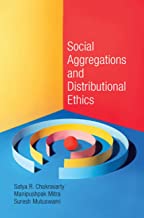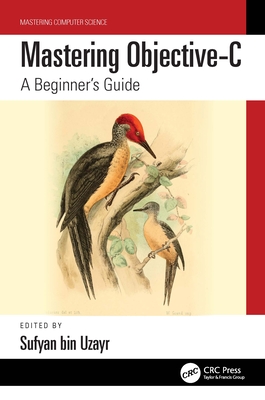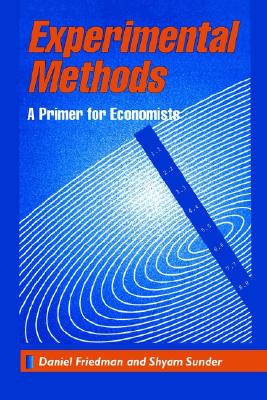图书简介
This book analyzes the following four distinct, although not dissimilar, areas of social choice theory and welfare economics: nonstrategic choice, Harsanyi’s aggregation theorems, distributional ethics and strategic choice. While for aggregation of individual ranking of social states, whether the persons behave strategically or non-strategically, the decision making takes place under complete certainty; in the Harsanyi framework uncertainty has a significant role in the decision making process. Another ingenious characteristic of the book is the discussion of ethical approaches to evaluation of inequality arising from unequal distributions of achievements in the different dimensions of human well-being. Given its wide coverage, combined with newly added materials, end-chapter problems and bibliographical notes, the book will be helpful material for students and researchers interested in this frontline area research. Its lucid exposition, along with non-technical and graphical illustration of the concepts, use of numerical examples, makes the book a useful text.
Preface; 1. Introduction; Bibliography; 2. Individual and social orderings; 2.1. Introduction; 2.2. relations; 2.3. Preference relations and choice sets; 2.4. Social orderings, quasi-orderings and weak quasi-orderings; 2.5. Exercises; 2.6. Bibliographical notes; bibliography; 3. May’s theorem; 3.1. Introduction; 3.2. The framework; 3.3. May’s theorem; 3.4. Robustness of the axioms; 3.5. Exercises; 3.6. Bibliographical notes; Bibliography; 4. Arrow’s theorem with individual preferences; 4.1. Introduction; 4.2. The framework; 4.3. The Arrow Impossibility theorem; 4.4. Two proofs of Arrow’s theorem; 4.5. Exercises; 4.6. Bibliographical notes; Bibliography; 5. Relaxing Arrow’s axioms; 5.1. Introduction; 5.2. Relaxing Weak Pareto; 5.3. Relaxing transitivity of (Social) binary relations; 5.4. Domain restriction: single peaked preferences; 5.5. Exercises; 5.6. Bibliographical notes; Bibliography; 6. Arrow’s theorem with utilities; 6.1. Introduction; 6.2. The framework and assumptions; 6.3. Measurability and comparability; 6.4. Arrow’s theorem; 6.5. Positional dictatorships; 6.6. Leximin; 6.7. Utilitarianism; 6.8. Exercises; 6.9. Bibliographical notes; Bibliography; 7. Harsanyi’s Social Aggregation theorem; 7.1. Introduction; 7.2. The model; 7.3. Appendix; 7.4. Illustrative examples; 7.5. Exercises; 7.6. Bibliographical notes and discussions; Bibliography; 8. Distributional ethics I; 8.1. Introduction; 8.2. Basics and preliminaries; 8.3. Common features; 8.4. The direct approach; 8.5. The inclusive-measure of well-being approach; 8.6. Direct descriptive inequality indices and reduced form welfare functions; 8.7. Measuring inequality within the Harsanyi framework; 8.8. Comparability between achievement and shortfall inequality: an expository analysis; 8.9. Equality of opportunity: an illustrative discussion; 8.10. Inequality and welfare with an ordinal dimension of well-being; 8.11. Inequality as an ordinal notion; 8.12. Fairness in network resource allocation: an analytical exposition; 8.13. Exercises; 8.14. Bibliographical notes; Bibliography; 9. Distributional ethics II; 9.1. Motivations; 9.2. Basics and preliminaries; 9.3. Common features; 9.4. The direct approach; 9.5. The inclusive-measure of well-being approach; 9.6. Direct descriptive multidimensional inequality indices and reduced form welfare functions; 9.7. Inequality under uncertainty: a brief discussion; 9.8 Exercises; 9.9 Bibliographical notes; Bibliography; 10. Social choice functions; 10.1. Introduction; 10.2. The framework and the Gibbard-Satterthwaite theorem; 10.3. Two proofs of the Gibbard-Satterthwaite theorem; 10.4. Single-peaked preferences; 10.5. Exercises; 10.6. Bibliographical notes; Bibliography; 11. Strategyproofness on quasi-linear domains; 11.1. Introduction; 11.2. The pure public goods problem; 11.3. Allocation of a single indivisible object; 11.4. Relaxing outcome efficiency: Affine maximizers; 11.5. Exercises; 11.6. Bibliographical notes; Bibliography; Index.
Trade Policy 买家须知
- 关于产品:
- ● 正版保障:本网站隶属于中国国际图书贸易集团公司,确保所有图书都是100%正版。
- ● 环保纸张:进口图书大多使用的都是环保轻型张,颜色偏黄,重量比较轻。
- ● 毛边版:即书翻页的地方,故意做成了参差不齐的样子,一般为精装版,更具收藏价值。
关于退换货:- 由于预订产品的特殊性,采购订单正式发订后,买方不得无故取消全部或部分产品的订购。
- 由于进口图书的特殊性,发生以下情况的,请直接拒收货物,由快递返回:
- ● 外包装破损/发错货/少发货/图书外观破损/图书配件不全(例如:光盘等)
并请在工作日通过电话400-008-1110联系我们。
- 签收后,如发生以下情况,请在签收后的5个工作日内联系客服办理退换货:
- ● 缺页/错页/错印/脱线
关于发货时间:- 一般情况下:
- ●【现货】 下单后48小时内由北京(库房)发出快递。
- ●【预订】【预售】下单后国外发货,到货时间预计5-8周左右,店铺默认中通快递,如需顺丰快递邮费到付。
- ● 需要开具发票的客户,发货时间可能在上述基础上再延后1-2个工作日(紧急发票需求,请联系010-68433105/3213);
- ● 如遇其他特殊原因,对发货时间有影响的,我们会第一时间在网站公告,敬请留意。
关于到货时间:- 由于进口图书入境入库后,都是委托第三方快递发货,所以我们只能保证在规定时间内发出,但无法为您保证确切的到货时间。
- ● 主要城市一般2-4天
- ● 偏远地区一般4-7天
关于接听咨询电话的时间:- 010-68433105/3213正常接听咨询电话的时间为:周一至周五上午8:30~下午5:00,周六、日及法定节假日休息,将无法接听来电,敬请谅解。
- 其它时间您也可以通过邮件联系我们:customer@readgo.cn,工作日会优先处理。
关于快递:- ● 已付款订单:主要由中通、宅急送负责派送,订单进度查询请拨打010-68433105/3213。
本书暂无推荐
本书暂无推荐












